Recent Blog Posts
Why Are Crack and Powder Cocaine Treated Differently in Criminal Cases?
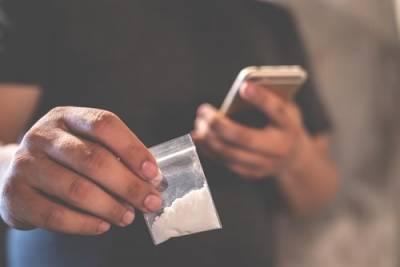 Cocaine is an illegal controlled substance, and those who are found in possession of this drug may face criminal charges for drug possession or distribution. However, cocaine comes in two forms: powder cocaine and "crack" cocaine. Even though both forms of cocaine are functionally equivalent, they are treated differently in the eyes of the law. This disparity has led to harsh sentences for those who are charged with offenses related to crack cocaine, and Black people have been disproportionately affected, meaning that they are likely to be convicted and serve longer sentences.
Cocaine is an illegal controlled substance, and those who are found in possession of this drug may face criminal charges for drug possession or distribution. However, cocaine comes in two forms: powder cocaine and "crack" cocaine. Even though both forms of cocaine are functionally equivalent, they are treated differently in the eyes of the law. This disparity has led to harsh sentences for those who are charged with offenses related to crack cocaine, and Black people have been disproportionately affected, meaning that they are likely to be convicted and serve longer sentences.
Disproportionate Approaches to Different Forms of Cocaine
Crack cocaine and powder cocaine are the same substance. Crack is created by mixing powder cocaine with water and baking soda to create "rocks" that are smoked rather than snorted. Under the Anti-Drug Abuse Act of 1986, the amount of cocaine that triggered a mandatory minimum sentence differed wildly depending on whether a person was found in possession of powder cocaine or crack. While a minimum five-year sentence would apply for someone caught with 500 grams of powder cocaine, just 5 grams of crack cocaine would result in the same sentence.
What Is Jury Nullification, and How Does it Affect Criminal Cases?
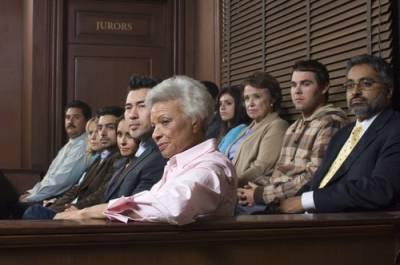 In the American criminal justice system, juries play a vital role. They are responsible for determining a defendant's guilt or innocence, and their verdicts can have far-reaching consequences. However, there may be some cases where jurors may believe that defendants have been treated unfairly, or they may seek to correct injustices and biases in the system. In the United States, juries have the power to find defendants "not guilty" even if they believe that the defendant may technically be guilty of the crime. This is called jury nullification.
In the American criminal justice system, juries play a vital role. They are responsible for determining a defendant's guilt or innocence, and their verdicts can have far-reaching consequences. However, there may be some cases where jurors may believe that defendants have been treated unfairly, or they may seek to correct injustices and biases in the system. In the United States, juries have the power to find defendants "not guilty" even if they believe that the defendant may technically be guilty of the crime. This is called jury nullification.
Jury nullification is also known as "conscientious acquittal" or "juror veto," and it can happen for a variety of reasons. In some cases, jurors may not agree with the law that the defendant is accused of breaking. For example, some juries have used nullification to acquit defendants accused of possessing small amounts of marijuana, even though marijuana possession is still technically illegal in many states. In other cases, jurors may believe that the defendant's actions, while technically criminal, did not deserve to be punished. For example, a jury may choose to nullify a criminal charge against a homeless person who stole food because they believe that the defendant was driven by necessity.
Should the Use of Solitary Confinement Be Reduced in U.S. Prisons?
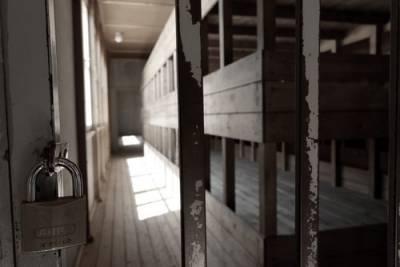 Most people are aware of the practice of solitary confinement in prisons, either from watching movies about prison or hearing about the treatment of prisoners in the news. Prisoners in the United States are routinely subjected to this form of confinement, which is also known as isolation or segregated confinement. However, this practice has been shown to cause a great deal of psychological harm, as well as physical health problems. Because of this, advocates for prisoners' rights are seeking to reduce or limit the use of solitary confinement, especially since it can be an issue that disproportionately affects minorities who become caught up in the criminal justice system.
Most people are aware of the practice of solitary confinement in prisons, either from watching movies about prison or hearing about the treatment of prisoners in the news. Prisoners in the United States are routinely subjected to this form of confinement, which is also known as isolation or segregated confinement. However, this practice has been shown to cause a great deal of psychological harm, as well as physical health problems. Because of this, advocates for prisoners' rights are seeking to reduce or limit the use of solitary confinement, especially since it can be an issue that disproportionately affects minorities who become caught up in the criminal justice system.
Problems With Solitary Confinement and New Laws and Policies to Address the Issue
Solitary confinement is defined as holding a prisoner in isolation and restricting their contact with other people for at least 22 hours per day for a period of 15 days or more. In many cases, prisoners in solitary confinement are held in a small cell, with no access to natural light or fresh air. They are often denied exercise, recreation, and contact with family and friends. Lights in cells may be left on at all times, limiting a person's ability to sleep. While short periods of isolation may be necessary to protect the safety of a person or others, there are some cases where prisoners may be held in solitary confinement for weeks, months, or even years.
Privacy Advocates Raise Concerns About Mass Surveillance by Police
 In recent years, the use of cell phone location data by police in criminal investigations has become a controversial issue. Critics argue that the use of this data violates privacy rights, while proponents argue that it is a valuable investigatory tool. While there is no denying that the use of location data can help law enforcement investigate crimes and identify suspects, there are valid privacy concerns that can affect the rights of defendants in criminal cases. Recently, the extent of police surveillance of private citizens has become more clear as advocates have uncovered the widespread use of a tool that can track people's location data.
In recent years, the use of cell phone location data by police in criminal investigations has become a controversial issue. Critics argue that the use of this data violates privacy rights, while proponents argue that it is a valuable investigatory tool. While there is no denying that the use of location data can help law enforcement investigate crimes and identify suspects, there are valid privacy concerns that can affect the rights of defendants in criminal cases. Recently, the extent of police surveillance of private citizens has become more clear as advocates have uncovered the widespread use of a tool that can track people's location data.
Fog Reveal Provides "Mass Surveillance on a Budget"
An investigation by the Electronic Frontier Foundation (EFF) has found that the company Fog Data Science LLC has provided a cell phone location data tracking tool to law enforcement agencies throughout the United States. This tool is known as Fog Reveal, and it allows police to access information about people's devices and track their movements over multiple months. While this has aided police in investigations and prosecutions of several high-profile cases, the use of this tool has been secretive, and in many cases, law enforcement officials and prosecutors have failed to disclose the methods used to identify suspects during criminal cases.
Are Juvenile Offenders Subject to Cruel and Unusual Punishment?
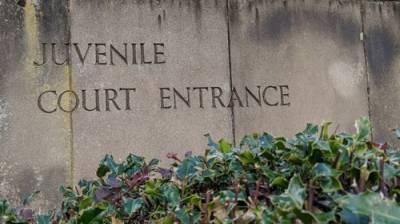 The criminal justice system in the United States often comes under fire for the way people are treated when they are arrested, charged with crimes, placed in detention, or imprisoned. While many criminal justice reform advocates have raised concerns about the treatment of adult prisoners, issues related to juvenile offenders are often even more troubling. Some recent reports have shown that minors in juvenile detention facilities throughout the United States are often subject to harsh treatment and placed in unsafe conditions. To ensure that their rights are protected, minors who are involved in the juvenile justice system and their family members can work with a criminal defense attorney who can help them determine the best ways to resolve their cases.
The criminal justice system in the United States often comes under fire for the way people are treated when they are arrested, charged with crimes, placed in detention, or imprisoned. While many criminal justice reform advocates have raised concerns about the treatment of adult prisoners, issues related to juvenile offenders are often even more troubling. Some recent reports have shown that minors in juvenile detention facilities throughout the United States are often subject to harsh treatment and placed in unsafe conditions. To ensure that their rights are protected, minors who are involved in the juvenile justice system and their family members can work with a criminal defense attorney who can help them determine the best ways to resolve their cases.
Problems With Juvenile Detention
When minors are accused of committing criminal offenses, juvenile courts will usually handle cases differently than when adults are prosecuted for crimes. The juvenile justice system is supposed to focus on rehabilitation rather than punishment. Minors should be provided with support to help address the causes of juvenile delinquency and help them avoid committing offenses in the future. While detention in juvenile facilities may be appropriate in some situations, other solutions may be used, such as placing a minor on probation, requiring them to attend educational classes or receive psychological treatment, or imposing sentences of community service and restitution.
Does the Federal Bureau of Prisons Earn Profits From Prisoners’ Money?
 The prison industry has come under fire in recent years due to its focus on earning profits while failing to protect the rights of prisoners. While this has been an issue addressed by criminal justice activists in relation to private prisons, many have also raised concerns about the practices followed by government agencies. A recent report found that the Federal Bureau of Prisons (BOP) has focused on using funds in accounts owned by prisoners to earn profits for the agency rather than paying restitution to victims or ensuring that prisoners meet other financial obligations, such as child support.
The prison industry has come under fire in recent years due to its focus on earning profits while failing to protect the rights of prisoners. While this has been an issue addressed by criminal justice activists in relation to private prisons, many have also raised concerns about the practices followed by government agencies. A recent report found that the Federal Bureau of Prisons (BOP) has focused on using funds in accounts owned by prisoners to earn profits for the agency rather than paying restitution to victims or ensuring that prisoners meet other financial obligations, such as child support.
Prisoner Funds Managed by the BOP
The Federal Bureau of Prisons manages two separate pools of money owned by prisoners. The first is known as the deposit fund, and it may consist of any funds kept in accounts for prisoners, who may not have access to traditional bank accounts. The other pool consists of prisoner commissary accounts, and it is known as the Trust Fund. These accounts are used by prisoners to make purchases of food or other items while behind bars, as well as services such as phone calls or internet access.
Can Law Enforcement Access DNA Used to Screen Infants for Diseases?
 DNA evidence is being used more and more often in criminal cases. Since everyone's DNA is unique, samples of blood or other bodily substances left behind at a crime scene can often be used to identify suspects. However, because family members share genetic information, police officers may gather DNA from other people to attempt to determine whether their relatives may have committed crimes. This has raised a number of concerns about privacy and whether these types of searches are Constitutional.
DNA evidence is being used more and more often in criminal cases. Since everyone's DNA is unique, samples of blood or other bodily substances left behind at a crime scene can often be used to identify suspects. However, because family members share genetic information, police officers may gather DNA from other people to attempt to determine whether their relatives may have committed crimes. This has raised a number of concerns about privacy and whether these types of searches are Constitutional.
Lawsuit in New Jersey Challenges Collection of Baby DNA in Criminal Cases
The New Jersey Office of the Public Defender (OPD) recently took legal action to address a subpoena used in a case in which the New Jersey State Police were seeking to identify a suspect in a sexual assault that took place in 1996. The police had narrowed down the potential suspects to one of three brothers. While they did not have a search warrant allowing them to take DNA samples from any of the suspects, they did request a blood sample that was kept on file with the state's Newborn Screening Laboratory. This sample had been taken in 2012, and by comparing the child's DNA with the DNA from the original crime scene, investigators were able to determine that the baby was the child of the person suspected of committing the crime. This gave them enough information to request a search warrant for a DNA sample from the child's father and prosecute that person for the 1996 offense.
Will the Federal Government Legalize Marijuana?
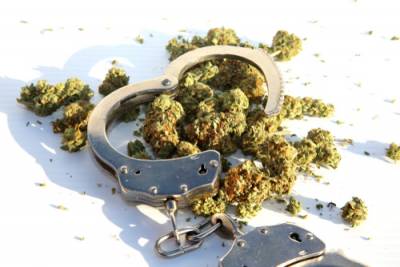 The laws in the United States related to marijuana have undergone many changes in recent years, and this has led to some confusion about which laws apply in which locations. Multiple states, including Connecticut, have made marijuana legal for both recreational and medical use. Other states only allow marijuana to be used for medical purposes, and some still consider it to be an illegal drug. At the federal level, marijuana is still considered to be a controlled substance, which means that people could potentially face federal charges even if they purchase marijuana legally in one state but transport it to another state. Lawmakers have taken steps to address these issues, and recently, a bill was introduced in the U.S. Senate that would decriminalize marijuana at the federal level.
The laws in the United States related to marijuana have undergone many changes in recent years, and this has led to some confusion about which laws apply in which locations. Multiple states, including Connecticut, have made marijuana legal for both recreational and medical use. Other states only allow marijuana to be used for medical purposes, and some still consider it to be an illegal drug. At the federal level, marijuana is still considered to be a controlled substance, which means that people could potentially face federal charges even if they purchase marijuana legally in one state but transport it to another state. Lawmakers have taken steps to address these issues, and recently, a bill was introduced in the U.S. Senate that would decriminalize marijuana at the federal level.
The Cannabis Administration and Opportunity Act
In July of 2022, Senate Majority Leader Chuck Schumer of New York, Senator Cory Booker of New Jersey, and Senator Ron Wyden of Oregon formally introduced the Cannabis Administration and Opportunity Act (CAOA) in the U.S. Senate. When doing so, they noted that the overwhelming majority of people in the United States support the legalization of marijuana, and the majority of Americans also live in states where cannabis is legal in some form. They also stated that the so-called "war on drugs" and the prosecution of crimes related to marijuana has negatively affected many people, especially people of color, and decriminalization of marijuana will promote both justice and public safety.
When Can False Memories Affect Criminal Cases?
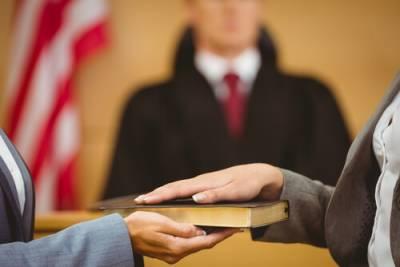 Memories can be surprisingly unreliable. This can be a difficult idea to swallow, since people often have strong emotions associated with the memories of their life experiences. However, even when a person believes that they have a strong memory that allows them to recall facts, people, or experiences, they often get the details wrong. People may misremember the order of events, inadvertently combine multiple memories, or even believe that someone else’s memories are their own. Unfortunately, even when memories are unreliable, people may strongly believe that they are correct. When a person’s memories are a key factor in a criminal case, this may lead to wrongful convictions.
Memories can be surprisingly unreliable. This can be a difficult idea to swallow, since people often have strong emotions associated with the memories of their life experiences. However, even when a person believes that they have a strong memory that allows them to recall facts, people, or experiences, they often get the details wrong. People may misremember the order of events, inadvertently combine multiple memories, or even believe that someone else’s memories are their own. Unfortunately, even when memories are unreliable, people may strongly believe that they are correct. When a person’s memories are a key factor in a criminal case, this may lead to wrongful convictions.
Far too often, criminal charges are based on eyewitness testimony, without any other supporting evidence. A testimony given by a victim or witness to a crime can be powerful, and a witness's identification of a suspect in a criminal trial can seem like incontrovertible truth, especially when strong emotions are involved. However, the unreliability of memory can easily cause a victim or witness to identify the wrong person.
Are U.S. Citizens Protected Against Civil Rights Violations by Federal Officers?
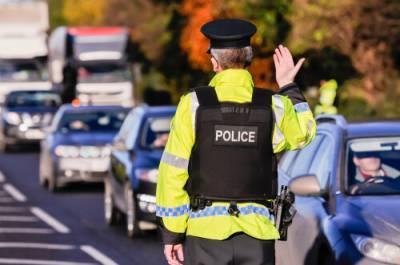 People in the United States have a number of protections against unfair or illegal actions by law enforcement officials. These Constitutional rights include Fourth Amendment protections against unlawful search and seizure. Under the Fourth Amendment, police officers or other officials generally cannot enter and search a person’s property without first receiving permission or obtaining a warrant. The First Amendment also protects the right to free speech and ensures that a person will not face retaliation for legal actions such as making a complaint.
People in the United States have a number of protections against unfair or illegal actions by law enforcement officials. These Constitutional rights include Fourth Amendment protections against unlawful search and seizure. Under the Fourth Amendment, police officers or other officials generally cannot enter and search a person’s property without first receiving permission or obtaining a warrant. The First Amendment also protects the right to free speech and ensures that a person will not face retaliation for legal actions such as making a complaint.
When these rights are violated in criminal cases or other situations, people may be able to take legal action to address the issue. Lawsuits may be filed seeking monetary compensation for civil rights violations, asking the government to take action against an official who committed a violation, and putting procedures in place to prevent similar violations from occurring in the future. However, due to a recent Supreme Court decision, the ability to pursue lawsuits in cases involving civil rights violations by federal agents may be limited.






